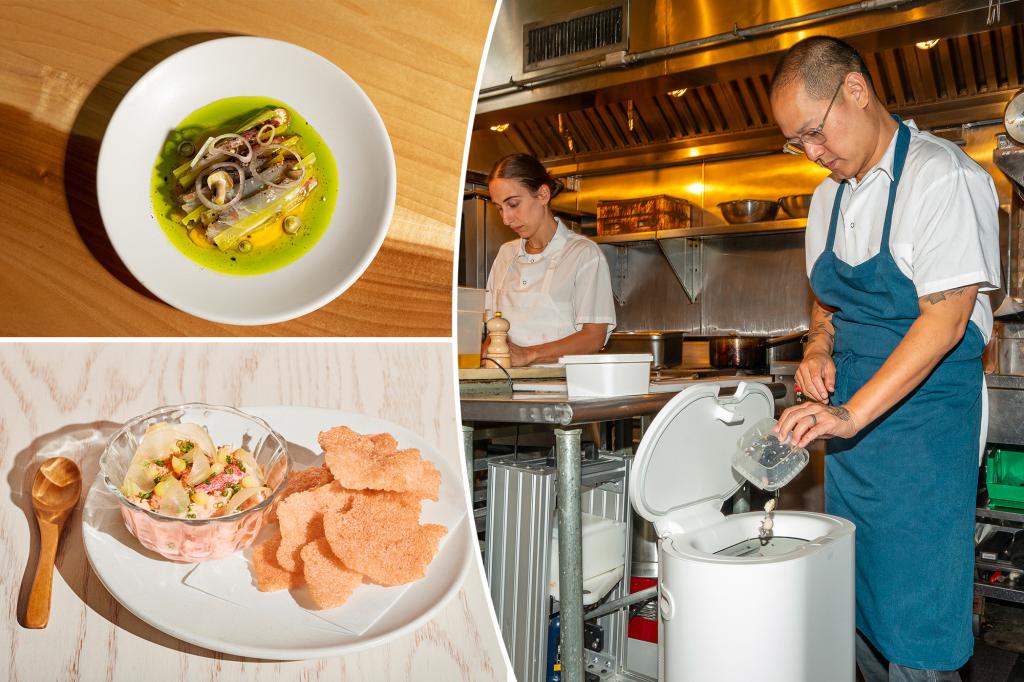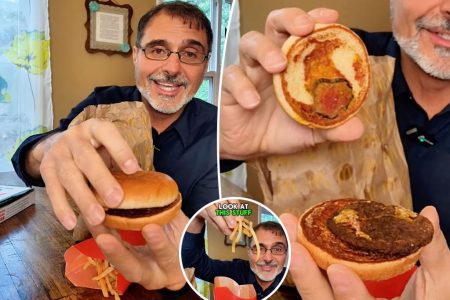Make Food, Not Waste Restaurant Week in New York City has gathered a dozen top restaurants and bars to participate in the challenge of producing no food waste for an entire week. The initiative is aligned with the city’s mandatory composting program, pushing kitchens to get creative in reducing, reusing, and recycling their ingredients from September 30 through October 6. Chefs like James Beard Award-winning Dan Kluger see this as an opportunity to explore new ways to reduce waste and create delicious dishes without contributing to the growing food waste problem.
The participating restaurants include esteemed establishments like Musket Room, Loring Place, Rezdôra, and Win Son, as well as newer hot spots such as Bar Contra and Corima. Chefs like Taka Sakaeda of Nami Nori find the Make Food, Not Waste initiative to spark new ideas and push their creativity further. Food waste is a significant contributor to methane production in landfills, a potent greenhouse gas that impacts climate change. Many chefs participating in this initiative feel a personal connection to the issue, especially those focused on ocean-fresh cuisine, as the state of the oceans directly affects their ability to serve certain types of seafood.
To showcase their commitment to the cause, each eatery will be serving a new dish or cocktail that embodies their innovative approach to no-waste cooking. From smoked salmon toast to lobster dip with yuzu gelée, each item highlights how restaurants are utilizing ingredients that might typically go to waste. Working together with their teams to produce zero waste has made brainstorming sessions more enjoyable for chefs like Fabian von Hauske of Bar Contra, sparking creativity and encouraging them to find new uses for items that would have otherwise been discarded.
The new dishes introduced during Make Food, Not Waste Restaurant Week showcase the utilization of trims, peels, and scraps from other dishes to inspire unique offerings. Chefs like Fidel Caballero of Corima are utilizing ingredients like burnt corn husks to create flavorful additions to their menus. In addition to being creative with their ingredients, all participating restaurants are utilizing Mill food recyclers to dry and grind food scraps, either for composting or to create chicken feed. The initiative coincides with the upcoming launch of weekly curbside composting pickups for all residential buildings in Manhattan, The Bronx, and Staten Island.
Chefs like Aidan O’Neal of Le Crocodile emphasize the importance of reframing luxury to be creative and abundant rather than expensive and wasteful. With changing food systems and the need to adapt to a more sustainable way of operating, the Make Food, Not Waste initiative provides an opportunity for restaurants to rethink their practices and contribute to a more environmentally friendly approach to food preparation. By participating in this initiative, chefs and establishments are not only reducing food waste but also showcasing the delicious results that can be achieved with innovative approaches to cooking and sourcing ingredients.















